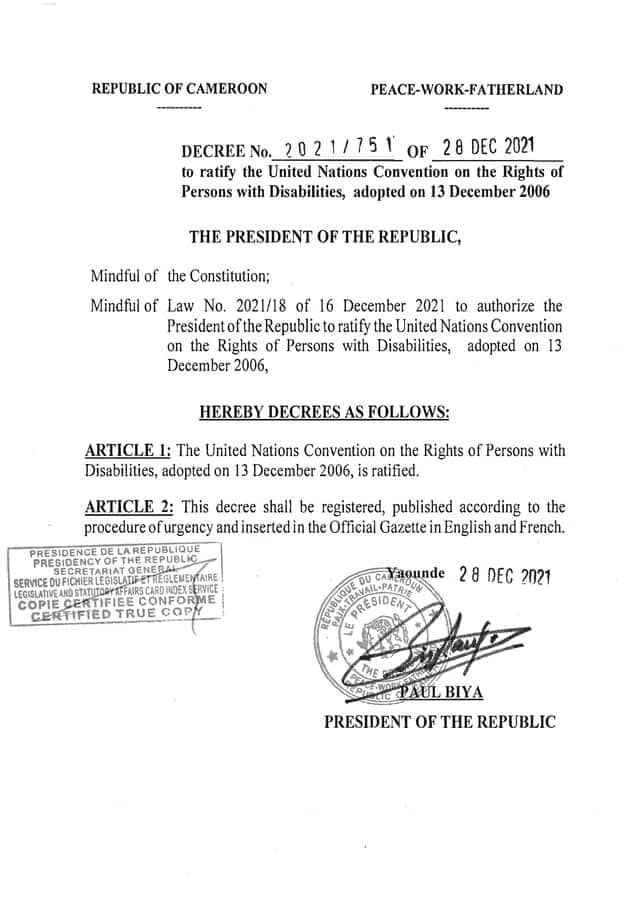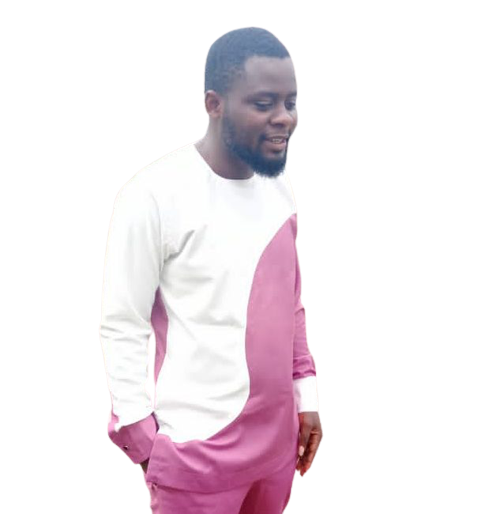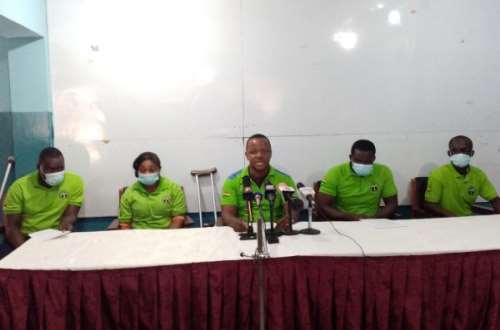By Kesah Princely and Anye Valentine Tabufor
Shortly after ratifying the Convention on the Rights of Persons with Disabilities (CRPD), Cameroonians with disabilities think it is high time their expectations were known and satisfied.
Adopted in 2006 to protect and promote the rights of Persons with Disabilities (PWDs), Cameroon’s President, Paul Biya on December 28, 2021, ratified the Convention, 16 years after endorsement by other countries.
TWIF NEWS captured the thoughts and expectations of some leaders of associations of persons with disabilities.
“We have been using the advocacy method since we never had an army or tools to fight the government,” revealed Ngong Peter Tonain.
Ngong Peter is President of Hope Social Union for the Visually Impaired (HSUVI), a Bamenda-based association of persons with visual impairment.
The association has been militating for the inclusion of persons with disabilities for nearly two decades.
In Cameroon, many associate disability with witchcraft, a situation that has prompted leaders of persons with disabilities to take up the challenge of changing the narrative.
“It has been a lifelong battle since some of us were born with a disability and some acquired along the way. Since the day we started living with one form of disability or another, it became a battle for us to push for inclusion,” revealed Nincho Samuel, erstwhile President of the Coordinating Unit of Associations of Persons with Disabilities (CUAPWD) – North West.
Ratifying the 2006 Convention on the Rights of Persons with Disabilities in Cameroon, has thus, been regarded as a landmark achievement by disability advocates and PWDs themselves.
“The ratification would serve as a great morale booster to us because with our advocacy, we can go very far for the world to see our expectations,” Ngong Peter disclosed hopefully.
Persons with Disabilities generally believe that it is the right time for them to make their expectations known.
But what are these expectations?
Persons with disabilities feel to have been abandoned by the government in the domain of employment.
Despite making efforts to acquire formal education, very little or nothing is done to get them employed after university studies.
“Many of us have struggled to acquire education, but nothing is done to provide us with employment. Our parents feel discouraged sponsoring us they sacrifice all they have to see us through; only for us to stay at home after graduating,” Ngong Peter revealed sadly.
Just like many of his peers, Ngong Peter has not been employed for over half a decade after obtaining a Master’s degree in the University of Buea.
Days before Cameroon ratified the CRPD, a group of persons with visual impairment, in a letter to the Prime Minister aired their frustration on the non-recruitment of PWD.
It is now hoped that with the endorsement of the said convention, the government would address this plight.
Other expectations raised by persons with disabilities are in the domains of transportation, culture and sports.
But for now, their greatest expectation is that the state should recruit persons with disabilities who remain jobless despite having been trained in different universities across the country.
According to the law, 10% of employment opportunities, both in the public and private sectors should be allocated to persons with disabilities.
Ngong Peter and Nincho Samuel on their part think this is not concrete on the ground as competent persons with disabilities are left to toil in misery.






















